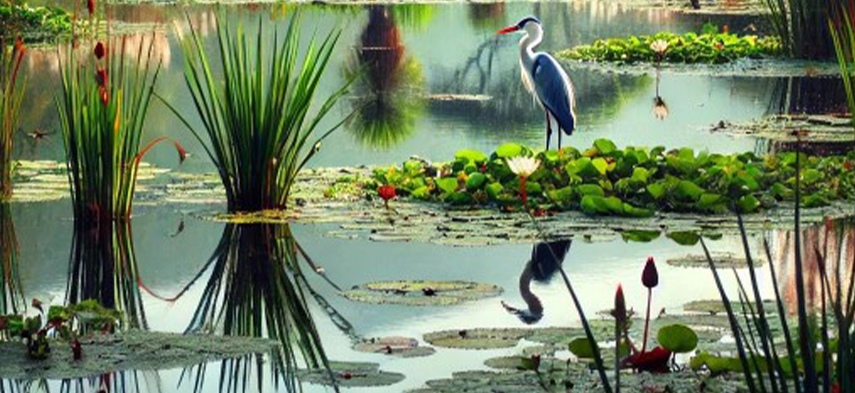
Equipped with state-of-the-art laboratories that provide students with hands-on experiences to bridge theory and practice
Wetlands are among the world’s most important ecosystems, yet they are also among the most threatened. In recognition of this, the global community celebrates World Wetlands Day on 2 February every year to raise awareness of the vital role wetlands play in sustaining biodiversity, mitigating climate change, and supporting livelihoods. The 2025 theme, “Protecting Wetlands for Our Common Future”, is a timely reminder for South Africa and the world to strengthen efforts in conserving these vital aquatic ecosystems.

South Africa boasts a rich network of wetlands, including De Berg Nature Reserve, which was recently designated as the country’s 30th Ramsar Wetland of International Importance. This achievement highlights the nation’s wealth of diverse wetland habitats that are important for biodiversity, water security, and climate resilience. However, these ecosystems face growing threats from human activities and environmental change.
What is threatening our wetlands?
Direct drivers of wetland degradation include both natural and human-induced causes. These pressures include land-use change, pollution, sedimentation, crop cultivation, water abstraction, sand and peat mining, vegetation harvesting, infrastructure development, and invasion by alien plant species. In South Africa, wetland agriculture is a major contributor to this degradation, with large-scale commercial operations posing significant challenges to wetland health.
For example, in some areas of Limpopo, including Tzaneen and Thohoyandou, agriculture and plantations have led to the disappearance of wetlands and the loss of critical ecosystem services, such as water filtration, flood control, and biodiversity support. This is particularly concerning to South Africa, which is water-scarce, receiving an average of only 464 mm of rainfall annually.
A policy framework for wetland protection
South Africa has several laws and policies to protect wetlands, starting with the Constitution (1996). Section 24 states that everyone has the right to a healthy environment, which includes conserving natural ecosystems like wetlands. Several national laws, together, give support to the protection of wetlands, including:
However, while these laws are strong on paper, implementation remains a challenge. Poor cooperation between government departments, lack of resources and weak enforcement have slowed progress. Therefore, strengthening institutional capacity, promoting integrated governance, and improving resource allocation are some of the important and necessary steps in closing these gaps.

The Ramsar Convention’s role in wetland conservation
The Ramsar Convention on Wetlands, signed in 1971, provides an international framework for the protection and sustainable use of wetlands. South Africa, as a member, has committed to safeguarding its Ramsar sites and ensuring sustainable use of wetlands. The continuing recognition of wetlands in South Africa as Ramsar sites is a testament to this, but more must be done to improve wetland conservation across the country. This includes strengthening partnerships between government, researchers, communities, and industries, as well as promoting awareness and education on the value of wetlands.
Towards a sustainable future
Protecting wetlands requires action from everyone: the government, communities, researchers, and individuals. To secure the future of these ecosystems, we can:
Wetlands are essential to life. They protect our water, climate, and biodiversity. As we mark World Wetlands Day 2025, let’s remember that protecting wetlands is about securing a healthier and more sustainable future for all. Together we can protect wetlands for our common future.
*By Dr. Pfananani Anania Ramulifho, Senior Lecturer, Department of Environmental Sciences, and Dr Malebo Matlala, Senior Lecturer, Department of Environmental Sciences
Publish date: 2025/02/04
 Unisa celebrates a project of hope, dignity and student success
Unisa celebrates a project of hope, dignity and student success
 Women vocalists take top honours at Unisa's globally renowned showcase
Women vocalists take top honours at Unisa's globally renowned showcase
 African wealth is dependent on investment in education and development
African wealth is dependent on investment in education and development
 Unisa celebrates matric result success at Correctional Services ceremony
Unisa celebrates matric result success at Correctional Services ceremony
 Unisa ICT Director recognised among acclaimed IT leaders
Unisa ICT Director recognised among acclaimed IT leaders